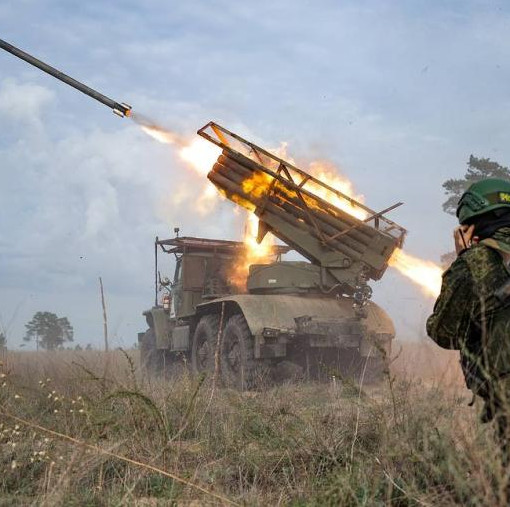Russia is adroitly using the prospect of large-scale transnational energy investments in South Asia in order to acquire leverage for “balancing” the region and counteracting American influence there.
It was recently announced that Russia and Pakistan agreed to conduct a feasibility study for building a pipeline from Iran into the South Asian state, a proposal that was first officially brought up in connection with President Putin’s visit to Iran last November when Energy Minister Alexander Novak spoke about the possibility of his country constructing an Iran-Pakistan-India gas corridor. While details remain scant about the route that this envisioned project could take and whether it would be overland like the Turkmenistan-Afghanistan-Pakistan-India (TAPI) pipeline or underwater, the fact of the matter is that Russia is slowly but steadily making progress on advancing this idea through its recently agreed feasibility study with Pakistan.
This initiative is about more than just about raking in potential profits and deepening Russia’s non-Western economic partnerships, but is part and parcel of its larger policy of becoming the supreme “balancing” force in Afro-Eurasia, to which end Moscow has sought to enter into unprecedented rapprochements with non-traditional partners such as Pakistan. The importance of any transnational pipeline project between Russia and Pakistan is that it would give Moscow a significant physical stake in the South Asian region, which could then enable it to leverage this investment for “energy diplomacy” purposes in then assuming a larger role in maintaining the strategic “balance” between its traditional partners in India and its newfound ones in Pakistan.
The South Asian space has become unprecedentedly important over the past couple of years since China announced the creation of its game-changing China-Pakistan Economic Corridor (CPEC) Silk Road centerpiece which aims to become Beijing’s first non-Malacca access route to the Indian Ocean. In response to what it considers to be an infringement of its territorial integrity via its maximalist approach to the Kashmir Conflict, India has decisively pivoted towards the US in order to “contain” China and – as it sees it – “restore the regional balance”. This has contributed to an uncomfortable state of affairs whereby Russia and India, long-standing historical partners, find themselves proceeding along opposite strategic trajectories vis-à-vis China and the US.
Taking matters even further, there have been serious concerns over the past few years that India and the US are coordinating a Hybrid War on CPEC via a multifaceted campaign of asymmetrical destabilization using a combination of militant proxies, information warfare, and border provocations in order to undermine China’s game-changing project for breaking out of the Malacca chokepoint and obtaining unrestricted access to the Indian Ocean. This has raised worries that South Asia is rapidly becoming a focal point in the New Cold War, made all the more dangerous by the fear that the US and China’s nuclear-equipped partners in India and Pakistan respectively could enter into a war by miscalculation.
What’s clearly needed in order to stabilize regional affairs is a neutral third-party “balancing” force capable of bringing all stakeholders together and reinforcing trust between them, ergo the role that Russia is poised to play through its prospective pipeline project with Pakistan. Although it’s still too early to attach any timeline to it, these plans call for Moscow to function as the irreplaceable entity connecting Iran, Pakistan, and India’s energy infrastructure, with the scenario conceivably existing for the Pakistani portion to be linked to the separate but related North-South gas pipeline that Russia also wants to build in Karachi in order to one day form the basis for an energy version of CPEC.
The prevailing idea at play here is that Russia’s “energy diplomacy” as practiced through the Iran-Pakistan-India (IPI) pipeline will enable Moscow to exert a restraining role over New Delhi in getting its decision makers to think twice about giving in to Washington’s suggestions that it intensify the Hybrid War on CPEC, seeing as how India’s own direct interests could be harmed by any resultant damage to the IPI pipeline that it would have a stake in keeping secure. The Russian-facilitated tightening of the complex interdependency between India and Pakistan would therefore have a positive peacemaking effect on the region and counteract the US’ divisive influence there.
It would be an exaggeration to say that this pipeline is a panacea for the many ailments plaguing the Indian-Pakistani relationship, and there’s still no deal to even build it in the first place since all that was agreed to was a feasibility study, but even this moderate development signifies Russia’s interest in maintaining a strategic balance between these two South Asian rivals so as to strengthen their intra-bloc collaboration via the Shanghai Cooperation Organization (SCO). The end result that Russia is endeavoring to achieve is to leverage its “energy diplomacy” in such a way that it ensures the long-term stability of South Asia as the region progressively integrates into the emerging Multipolar World Order.
DISCLAIMER: The author writes for this publication in a private capacity which is unrepresentative of anyone or any organization except for his own personal views. Nothing written by the author should ever be conflated with the editorial views or official positions of any other media outlet or institution.









